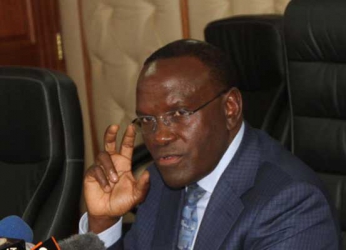×
The Standard e-Paper
Smart Minds Choose Us

NAIROBI, KENYA; Kenya is one of the countries that stands to benefit from Japan’s Sh290 billion (USD 2.9 billion) boon to developing nations to assist in attaining the Universal Health Coverage (UHC).
Japan’s Prime Minister Shinzo Abe announced this in Tokyo where the country is hosting the Universal Health Coverage Global Forum, Kenya being represented by Health Cabinet Secretary Dr Cleopa Mailu.